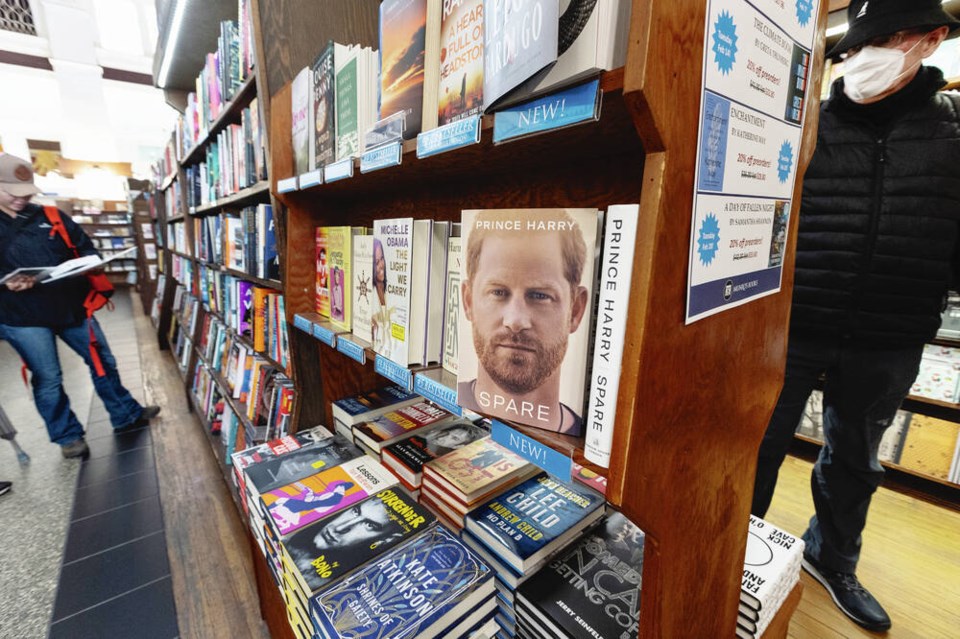In January 2020, I wrote a column saying we should welcome Prince Harry and Meghan to our region by leaving them alone. This week, I started reading Prince Harry’s book Spare, which was released on Tuesday.
I’ve never been one to follow the Royal Family. I don’t know much about the politics or formalities.
I am not a fan of the Royal Family. I am not a critic. I am indifferent.
I remember when Princess Diana died and I had classmates who stayed home from school, and their parents skipped worked, so they could watch the funeral. This wasn’t something that would have been an option in my family. I hadn’t even thought of it.
I am not heartless and felt saddened by Diana’s passing, appalled at the paparazzi, and wondered what Prince William and Prince Harry were going through. I am the same age as William, who was 15 when his mother died.
I grew up seeing photos of Prince Harry and his brother, wondering what their lives were like. Even as someone who is not a fan of the Royal Family, I wanted to learn about the experience, and to get a glimpse of a life that was so different from my own.
Within a day, Spare became the fastest-selling non-fiction book. There is mixed opinion about the memoir, the personal disclosures and reflections within it.
I love storytelling. I love learning from other people’s stories, reflections and feelings.
I also love a memoir narrated by the author. It feels like a conversation, hearing someone speaking directly to me about their inner thoughts.
I’ve seen clips of news anchors and talk-show hosts around the world criticizing Harry and Meghan for sharing their experiences — people saying that we’ve heard enough, and that the disclosures are an act of entitlement.
The book isn’t for everyone, and people who are not interested don’t need to read it. That’s true for any book or any other type of personal sharing in a variety of mediums.
I’ve often said I might write a book one day, but it would have to be after some of my family members have passed. I don’t want to upset people, and I don’t have secrets or disclosures nearly as groundbreaking as Prince Harry.
I can only imagine the strength it would take to make his story public. For me, as I read the book, I see images in my mind of Prince Harry throughout his life and feel like I’m getting a glimpse of what he experienced behind closed doors.
The thing I love most about hearing people’s stories is gaining understanding that we, as humans, share the same emotions, struggles and values.
When I read about someone’s trauma, learning opportunities and gratitude for mentors, it makes me feel validated.
In Western culture, we often try and sail through life appearing to never make mistakes. When we stumble, it’s common to point the finger at someone or something that got in our way.
I don’t know why we try and demonstrate that we are closer to perfect than we are.
A good memoir can’t carry a reader if it’s written by someone who points fingers at others and admits no responsibly.
I’ll read almost any memoir, even if I’ve never heard of the author. No matter who is telling the story, the story itself is a catalyst for connecting.
Gaining understanding of people who see the world differently from us helps build our cultural and emotional intelligence, and that aids in enhancing our relationships and interactions with others.



